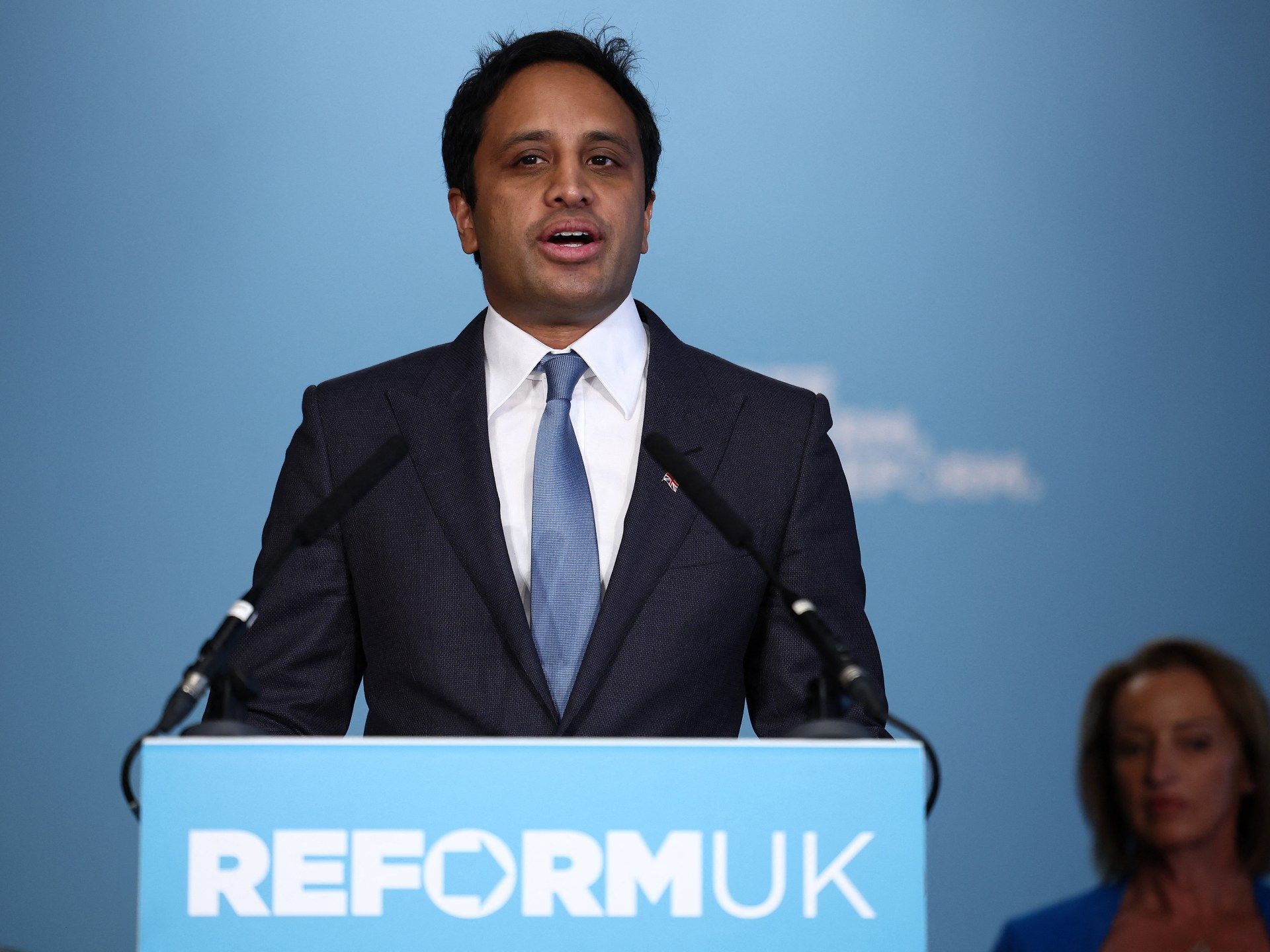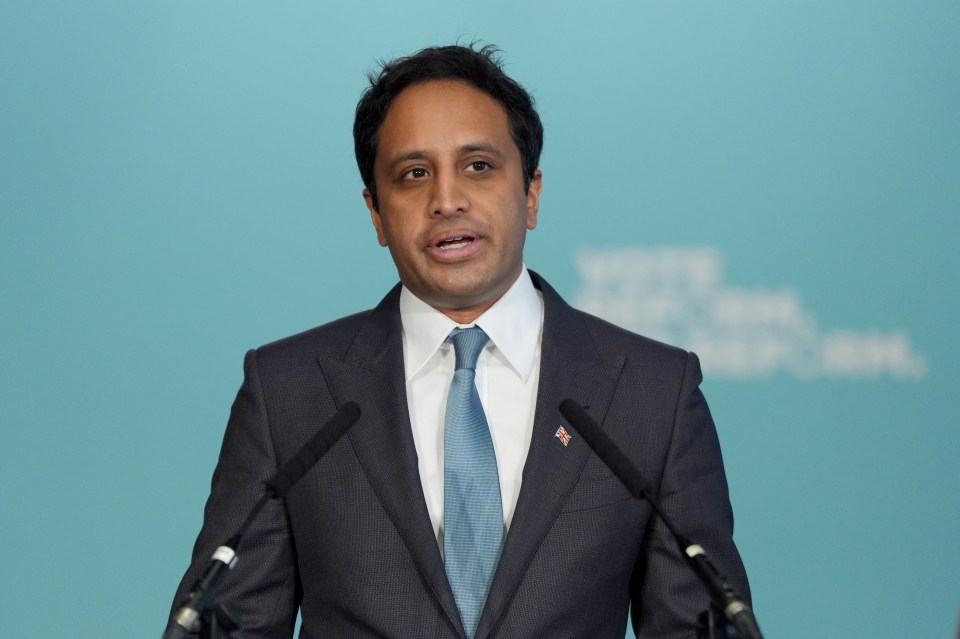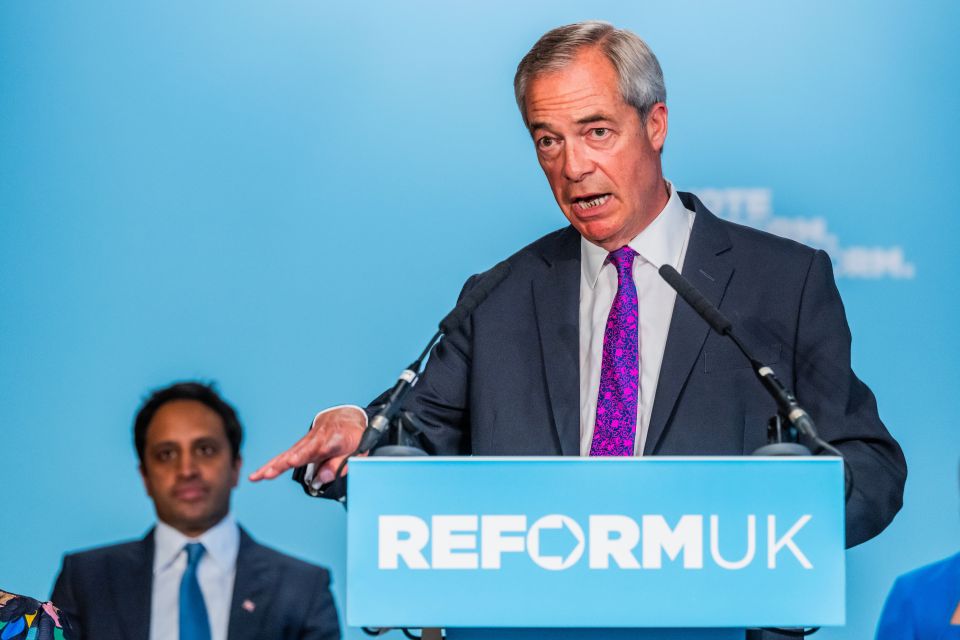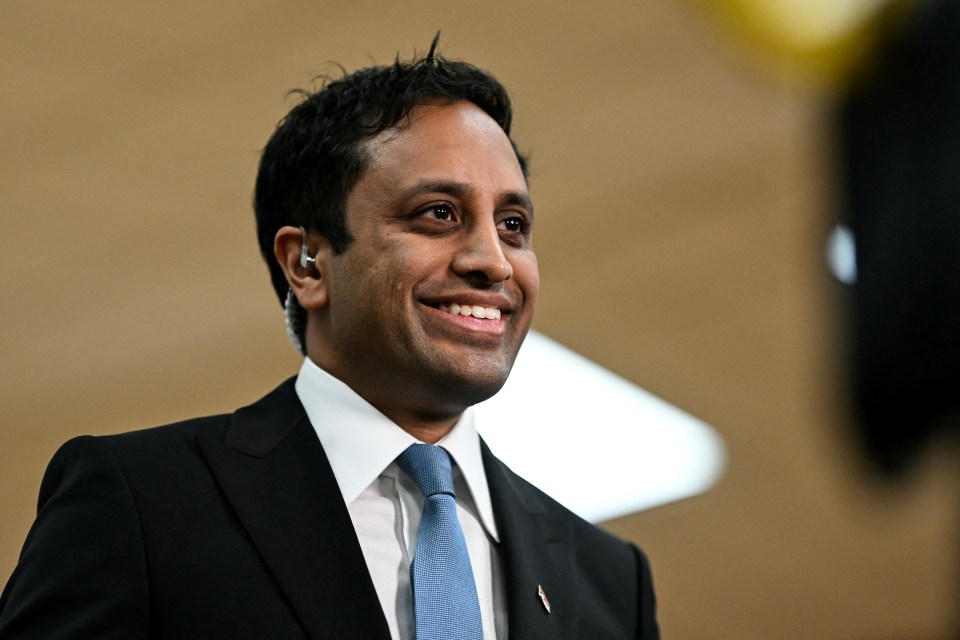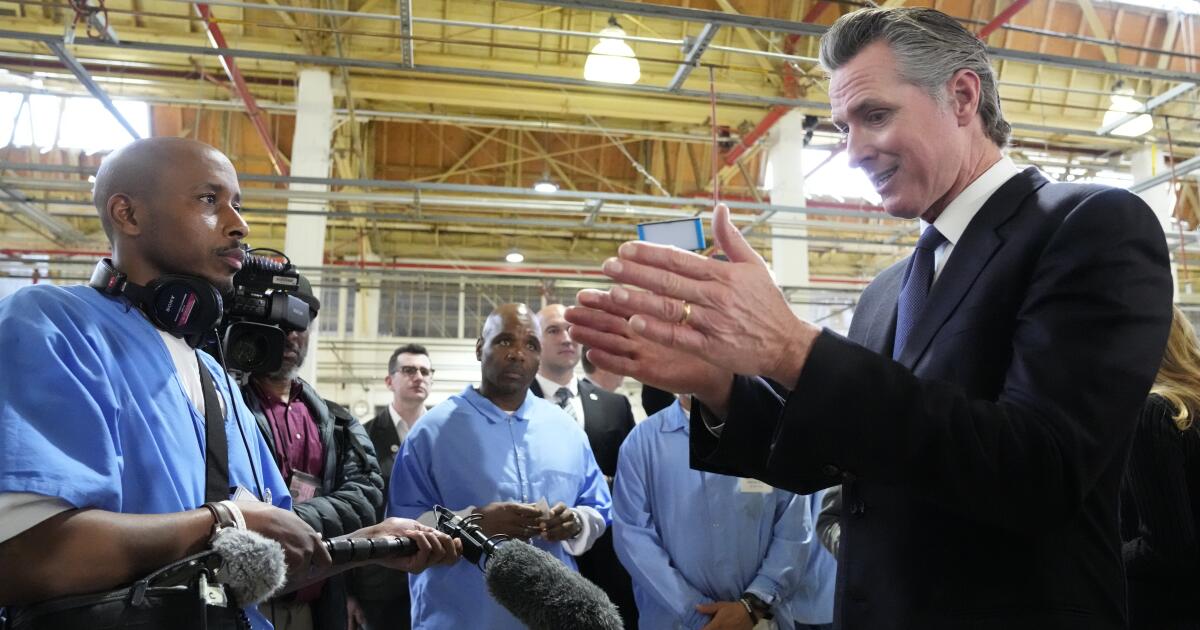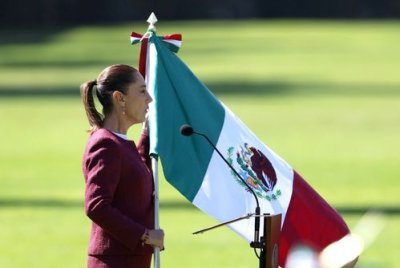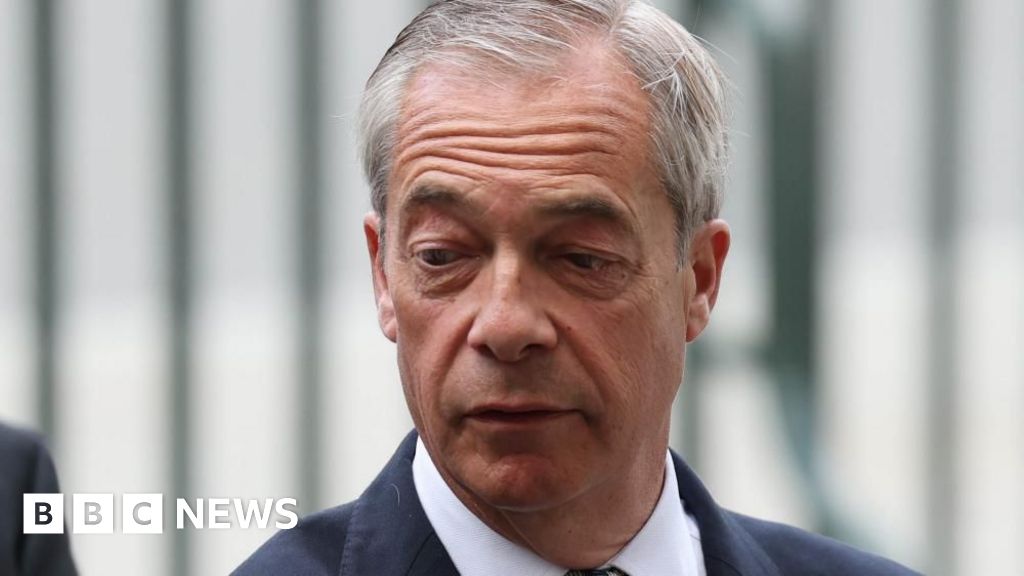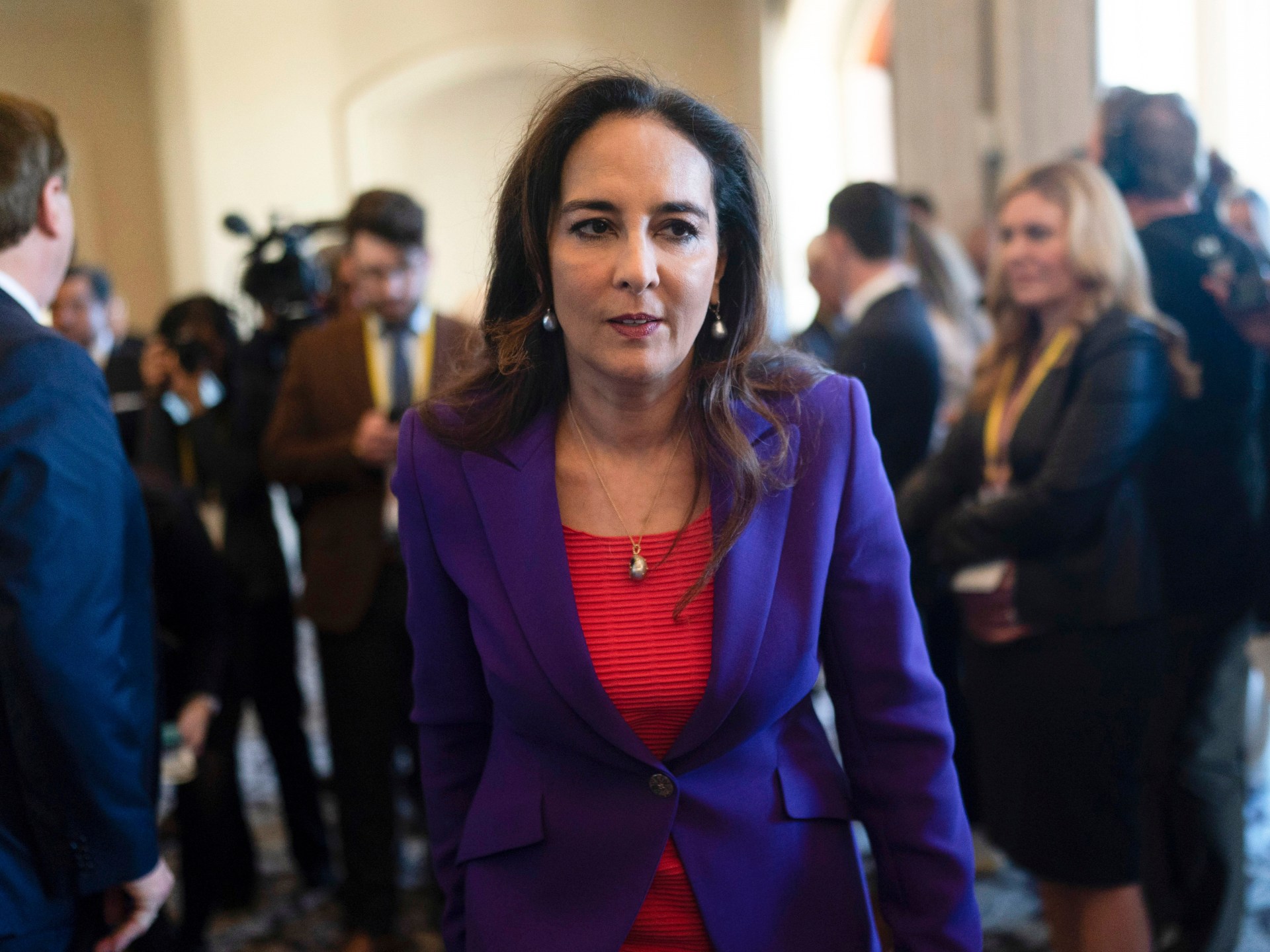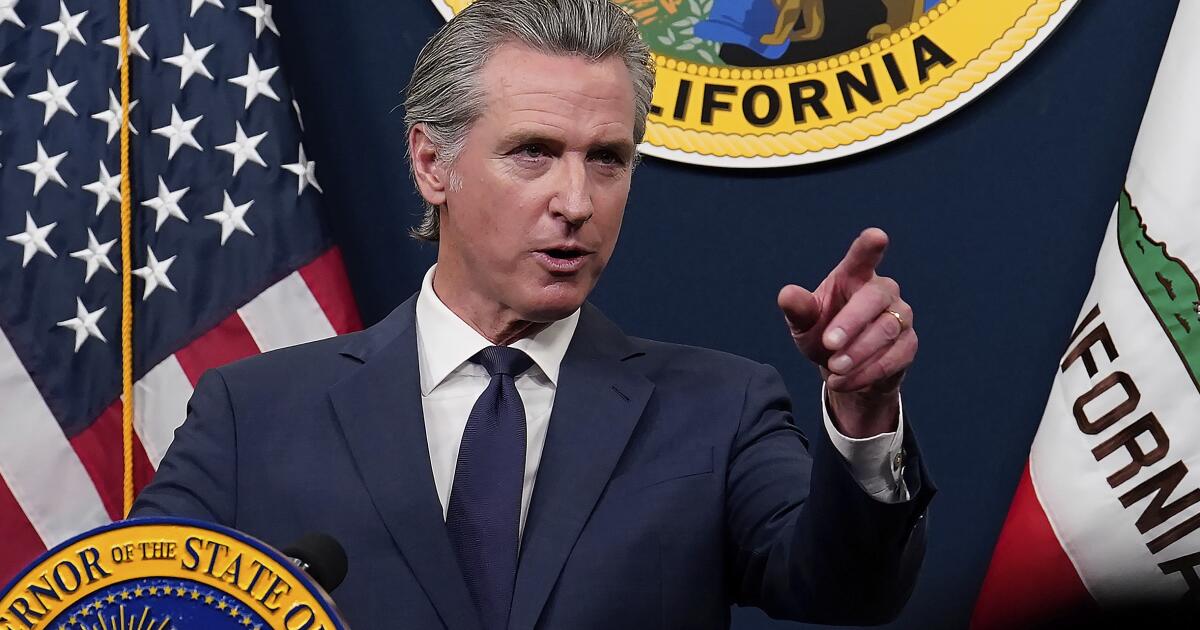On a recent morning inside San Quentin prison, Los Angeles County Dist. Atty. Nathan Hochman and more than a dozen other prosecutors crowded into a high-ceilinged meeting hall surrounded by killers, rapists and other serious offenders.
Name the crime, one of these guys has probably done it.
“It’s not every day that you’re in a room of 100 people, most of whom have committed murder, extremely violent crimes, and been convicted of it,” Hochman later said.
Many of these men, in their casual blue uniforms, were serving long sentences with little chance of getting out, like Marlon Arturo Melendez, an L.A. native who is now in for murder.
Melendez sat in a “sharing circle,” close enough to Hochman that their knees could touch, no bars between them. They chatted about the decrease in gang violence in the decades since Melendez was first incarcerated more than 20 years ago, and Melendez said he found Hochman “interesting.”
Inside San Quentin, this kind of interaction between inmates and guests isn’t unusual. For decades, the prison by the Bay has been doing incarceration differently, cobbling together a system that focuses on accountability and rehabilitation.
Like the other men in the room, Melendez takes responsibility for the harm he caused, and every day works to be a better man. When he introduces himself, he names his victims — an acknowledgment that what he did can’t be undone but also an acknowledgment that he doesn’t have to remain the same man who pulled the trigger.
Whether or not Melendez or any of these men ever walk free, what was once California’s most notorious lockup is now a place that offers them the chance to change and provides the most elusive of emotions for prisoners — hope.
Creating that culture is a theory and practice of imprisonment that Gov. Gavin Newsom wants to make the standard across the state.
He’s dubbed it the California Model, but as I’ve written about before, it’s common practice in other countries (and even in a few places in the United States). It’s based on a simple truth about incarceration: Most people who go into prison come out again. Public safety demands that they behave differently when they do.
“We are either paying to keep them here or we are paying if they come back out and harm somebody,” said Brooke Jenkins, the district attorney of San Francisco, who has visited San Quentin regularly for years.
Jenkins was the organizer of this unusual day that brought district attorneys from around the state inside of San Quentin to gain a better understanding of how the California Model works, and why even tough-on-crime district attorneys should support transforming our prisons.
As California does an about-face away from a decade of progressive criminal justice advances with new crackdowns such as those promised by the recently passed Proposition 36 (which is expected to increase the state inmate population), it is also continuing to move ahead with the controversial plan to remake prison culture, both for inmates and guards, by centering on rehabilitation over punishment.
Despite a tough economic year that is requiring the state to slash spending, Newsom has kept intact more than $200 million from the prior budget to revamp San Quentin so that its outdated facilities can support more than just locking up folks in cells.
Some of that construction, already happening on the grounds, is expected to be completed next year. It will make San Quentin the most visible example of the California Model. But changes in how inmates and guards interact and what rehabilitation opportunities are available are already underway at prisons across the state.
It is an overdue and profound transformation that has the potential to not only improve public safety and save money in the long run, but to fundamentally reshape what incarceration means across the country.
Jenkins’ push to help more prosecutors understand and value this metamorphosis might be crucial to helping the public support it as well — especially for those D.A.s whose constituents are just fine with a system that locks up men to suffer for their (often atrocious) crimes. Or even those Californians, such as many in San Francisco and Los Angeles, who are just fed up with the perception that California is soft on criminals.
“It’s not about moderate or progressive, but I think all of us that are moderates have to admit that there are reforms that still need to happen,” Jenkins told me as we walked through the prison yard. She took office after the successful recall of her progressive predecessor, Chesa Boudin, and a rightward shift in San Francisco on crime policy.
Still, she is vocal about the need for second chances. For her, prison reform is about more than the California Model, but a broader lens that includes the perspectives of incarcerated people, and their insights on what they need to make rehabilitation work.
“It really grounds you in your obligation to make sure that the culture in the [district attorney’s] office is fair,” she said.
For Hochman, a former federal prosecutor and defense lawyer who resoundingly ousted progressive George Gascón last year, rehabilitation makes sense. He likes to paraphrase a Fyodor Dostoevsky quote, “The degree of civilization in a society is revealed by entering its prisons.”
“In my perfect world, the education system, the family system, the community, would have done all this work on the front end such that these people wouldn’t have been in position to commit crimes in the first place,” he said. But when that fails, it’s up to the criminal justice system to help people fix themselves.
Despite being perceived as a tough-on-crime D.A. (he prefers “fair on crime”) he’s so committed to that goal of rehabilitation that he is determined to push for a new Men’s Central Jail in Los Angeles County — an expensive (billions) and unpopular idea that he says is long overdue but critical to public safety.
“Los Angeles County is absolutely failing because our prisons and jails are woefully inadequate,” he said.
He’s quick to add that rehabilitation isn’t for everyone. Some just aren’t ready for it. Some don’t care. The inmates of San Quentin agree with him. They are often fiercely vocal about who gets transferred to the prison, knowing that its success relies on having incarcerated people who want to change — one rogue inmate at San Quentin could ruin it for all of them.
“It has to be a choice. You have to understand that for yourself,” Oscar Acosta told me. Now 32, he’s a “CDC baby,” as he puts it — referring to the California Department of Corrections and Rehabilitation — and has been behind bars since he was 18. He credits San Quentin with helping him accept responsibility for his crimes and see a path forward.
When the California Model works, as the district attorneys saw, it’s obvious what its value is. Men who once were nothing but dangerous have the option to live different lives, with different values. Even if they remain incarcerated.
“After having been considered the worst of the worst, today I am a new man,” Melendez told me. “I hope (the district attorneys) were able to see real change in those who sat with them and be persuaded that rehabilitation over punishment is more fruitful and that justice seasoned with restoration is better for all.”
Melendez and the other incarcerated men at San Quentin aspire for us to see them as more than their worst actions. And they take heart that even prosecutors like Jenkins and Hochman, who put them behind bars, sometimes with triple-digit sentences, do see that the past does not always determine the future, and that investing in their change is an investment in safer communities.
